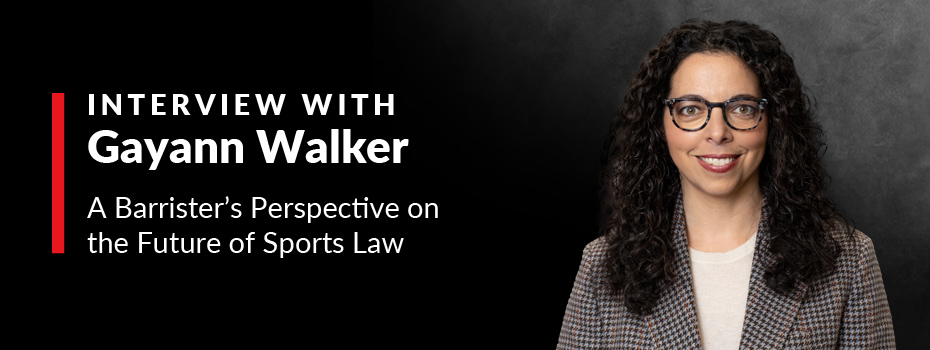
The Internet’s “bizarre” bazaar: ACCC enforcement on digital marketplaces
17 April 2023 06:40
Shaun Temby, Aman Dhingra and Rachel Herkes MADDOCKS
This article comes from the experts behind the Internet Law Bulletin which covers a range of legal issues posed by the Internet and online services: issues as diverse as copyright, defamation, online dispute resolution, privacy, trade practices and criminal law.
Subscribers to Practical Guidance can access the full bulletin HERE.
Key tips for lawyers advising companies with digital platforms
- The Australian Competition and Consumer Commission (ACCC)’s focus on misleading or deceptive conduct, as an enforcement priority for 2022/23, has led to a number of proceedings by the ACCC. We anticipate this focus to continue into 2023, with the ACCC joining the newly formed Digital Platform Regulators Forum (Forum), focused on stronger regulation of such platforms.
- Recent ACCC actions highlight the need for companies to be aware and proactive about ensuring transparency in digital advertising, with truth in online advertising being critical. Importantly, all digital market participants (Australian based, or those overseas companies operating in Australia) need to understand their obligations created by the Australian Consumer Law (ACL), and that all organisations will be judged in an Australian context and against the understanding of the ordinary and reasonable Australian consumer.
The ACCC has had a bustling start to 2022, pursuing numerous legal claims consistent with its announcement that misleading or deceptive advertising in the digital economy is an enforcement priority for 2022–23. During the first half of 2022, the ACCC either commenced court proceedings or obtained a judgement against several companies operating in an online marketplace, including Facebook owner Meta Platforms Inc and Meta Platforms Ireland Ltd (Meta), Trivago, Uber and Airbnb Inc and Airbnb Ireland UC (Airbnb).
These proceedings are designed to highlight and publicise to all market participants the need to understand the obligations created by the ACL and form part of a push by the ACCC for tighter regulation of digital platforms.
The ACCC’s role in the newly formed Forum cements a broader regulatory focus on truth in online advertising and serves as a timely reminder that businesses should be acutely aware of the intricacies of their digital advertising to ensure they are complying with their obligations under the ACL.
[FREE DOWNLOAD] ACCC 2023/24 Compliance and Enforcement Priorities
Let’s look at each of the claims made by the ACCC.
Meta
In March 2022, the ACCC initiated proceedings against Meta (formerly Facebook), alleging it engaged in misleading or deceptive conduct by publishing advertisements on Facebook promoting scam cryptocurrency and money-making initiatives. The advertisements featured fake quotes of prominent public figures, including David Koch, Dick Smith and Andrew Forrest, endorsing the schemes and encouraging users to provide personal details that would then be used by scammers. The scam is said to have caused an estimated consumer loss of around $99 million. The ACCC alleges Meta was aware of the scam, with complaints being made by the featured public figures as well as members of the public and Meta did not take sufficient action to stop it or the online advertising. Meta is currently defending the claim.
Trivago
As we have previously reported, the ACCC initiated proceedings in August 2018 against the hotel booking website Trivago over a television advert deemed misleading by representing that “Trivago makes it easy for you to find the ideal hotel for the best price”. In actuality, Trivago’s algorithm priority listed advertisers who were paying the highest cost per click amount to Trivago, rather than displaying the best price for the room. Consumers were also misled by “strike-through” price comparisons, where the price of a luxury room was struck through, and the price of a standard room was displayed, to appear as though the customer would receive a discount on the standard room rate. In January 2020, the Federal Court found that Trivago had breached the ACL and the ACCC sought a $90 million fine, which would have been one of the highest penalties ever imposed for a breach of the ACL. In the April 2022 Federal Court decision, Trivago was ordered to pay a fine of $44.7 million for its misleading conduct. While this was substantially less than the $90 million fine sought by the ACCC, the penalty was still greater than the $30 million in estimated loss and damage suffered by consumers.
Uber
In April 2022, the ACCC commenced proceedings against ridesharing giant Uber for the following misrepresentations made on its app:
- between December 2017 and September 2021, Uber displayed a cancellation warning to consumers suggesting they may be charged a fee for cancelling a ride, despite Uber’s policy that consumers are entitled to free cancellation within 5 minutes of a driver accepting a job and
- between June 2018 and August 2020 in Sydney, the Uber Taxi option within the Uber app falsely represented that fares would likely fall within the range shown in the app, despite the fare almost always being lower than that range
Uber admitted to breaching the ACL and made a joint submission with the ACCC to the Federal Court for a $26 million penalty. The court has not yet determined what penalty it will impose, but in a recent setback for the ACCC, the Judge hearing the case has indicated a $26 million penalty is too high. The Judge has asked the parties for more information to justify the penalty.
Airbnb
On 8 June 2022, the ACCC initiated Federal Court proceedings against Airbnb, alleging that between January 2018 and August 2021, Airbnb made misleading representations by displaying prices for Australian accommodations in US dollars without clearly indicating it was doing so. During this period, the average Australian dollar to US dollar exchange rate was $0.72, meaning customers were paying around 30% more than the advertised price. Airbnb received thousands of complaints from consumers, yet did not update the platform to rectify the issue until the matter was raised by the ACCC. The ACCC is seeking a penalty but also chasing compensation for impacted consumers for their loss. Airbnb’s Australia and New Zealand manager has agreed that those affected will be compensated, however, the scope and nature of the compensation will ultimately depend on the outcome of the court’s orders.
Why are these cases significant?
The conduct of companies with digital platforms has international reach due to the ubiquity of the Internet. However, it is important for businesses based overseas to understand that the ACL applies to foreign companies operating in Australia (via online marketplaces or digital platforms) and that breaches of the ACL will be prosecuted accordingly. The recent ACCC actions highlight the need for companies to be aware and proactive about ensuring transparency in digital advertising, with truth in online advertising being critical. The nature of this “truth” is judged through the eyes of the ordinary Australian consumer. Accordingly, the risk of ACCC proceedings is greater for companies who are alerted to a problem through consumer complaints but fail to take adequate action to remedy the breach, as has been the case for Airbnb and Meta.
The recent ACCC cases show that the ACCC is prepared to take action against operators of, and participants in, online marketplaces, even where it has been unsuccessful in the past. An action similar to the proceedings brought against Meta was brought by the ACCC against Google in 2013. The action was unsuccessful, with the court holding that Google was merely a conduit in passing on misleading and deceptive representations, and therefore was not responsible for the representations themselves. Relevant to the current case, Meta has made claims that its advertising targeting capabilities connect advertisers and audiences based on user behaviour, such that “the technology of Meta enabled these ads to be targeted to users more likely to engage with the ads”. The targeted advertising of Meta may see the court differentiate Meta from Google and determine that Meta played a more active role than merely passing on misleading or deceptive content.
Meta’s knowledge of the falsity due to the complaints of members of the public and the high-profile individuals may also differentiate Meta from Google, as despite knowledge of problems with the advertisements, Meta failed to take adequate steps to remedy the breach. It will be interesting to see how the court will address the 2013 decision against Google in the Meta proceedings, noting that the context and intricacies of the cases differ. The outcome of the Meta proceedings will have extensive impacts on digital platforms using targeted advertising, highlighting the expectation that such companies take proactive steps to monitor and remove misleading or deceptive advertisements.
The ACCC is showing no signs of slowing down its focus on the regulation of digital marketplaces, joining the newly formed Forum which champions communication and collaboration between key Australian regulators; the ACCC, the Australian Communications and Media Authority, the Office of the Australian Information Commissioner and the Office of the eSafety Commissioner. The Forum was introduced in March 2022 to streamline the regulation of digital platforms within Australia, focusing on digital transparency, the examination and understanding of algorithms and potential future actions needed to protect Australians against competition and consumer issues relating to digital platforms. Companies should take note that the focus on regulating digital marketplaces is likely to continue, with the Chair of the ACCC Ms Gina Cass-Gottieb noting:
The ACCC considers that the work of the Digital Platform Regulators Forum is key for our own work on digital platforms, particularly as we are currently reviewing whether there is a need for competition and consumer reform as part of our ongoing digital platforms inquiry.
Latest Articles
-
 Gayann Walkers is a well-respected Victorian Barrister. Tis interview focuses on what it takes to be a Barrister in sports law, and what the future of the field looks like.
Gayann Walkers is a well-respected Victorian Barrister. Tis interview focuses on what it takes to be a Barrister in sports law, and what the future of the field looks like. -
 The growth of artificial intelligence technologies in Australia has recently come under the spotlight, as the Albanese Government looks to review existing regulatory and governance mechanisms and establish applicable safeguards that are fit for purpose in the current day and age.
The growth of artificial intelligence technologies in Australia has recently come under the spotlight, as the Albanese Government looks to review existing regulatory and governance mechanisms and establish applicable safeguards that are fit for purpose in the current day and age. -
 Artificial Intelligence (AI) is developing fast – but how should it be used? Over the past month, the ethical use and development of AI have been heavily scrutinised as policymakers, intellectuals, and industry leaders debate whether a moratorium should be imposed on AI’s development, or whether AI should be embraced in the name of economic growth.
Artificial Intelligence (AI) is developing fast – but how should it be used? Over the past month, the ethical use and development of AI have been heavily scrutinised as policymakers, intellectuals, and industry leaders debate whether a moratorium should be imposed on AI’s development, or whether AI should be embraced in the name of economic growth.
Practical Guidance
Your one-stop solution for accurate legal answers from Australian legal experts. Tools, practically focused guidance notes, checklists, precedents, and training materials support and streamline your legal workflow.
LEARN MORE LexisNexis
LexisNexis